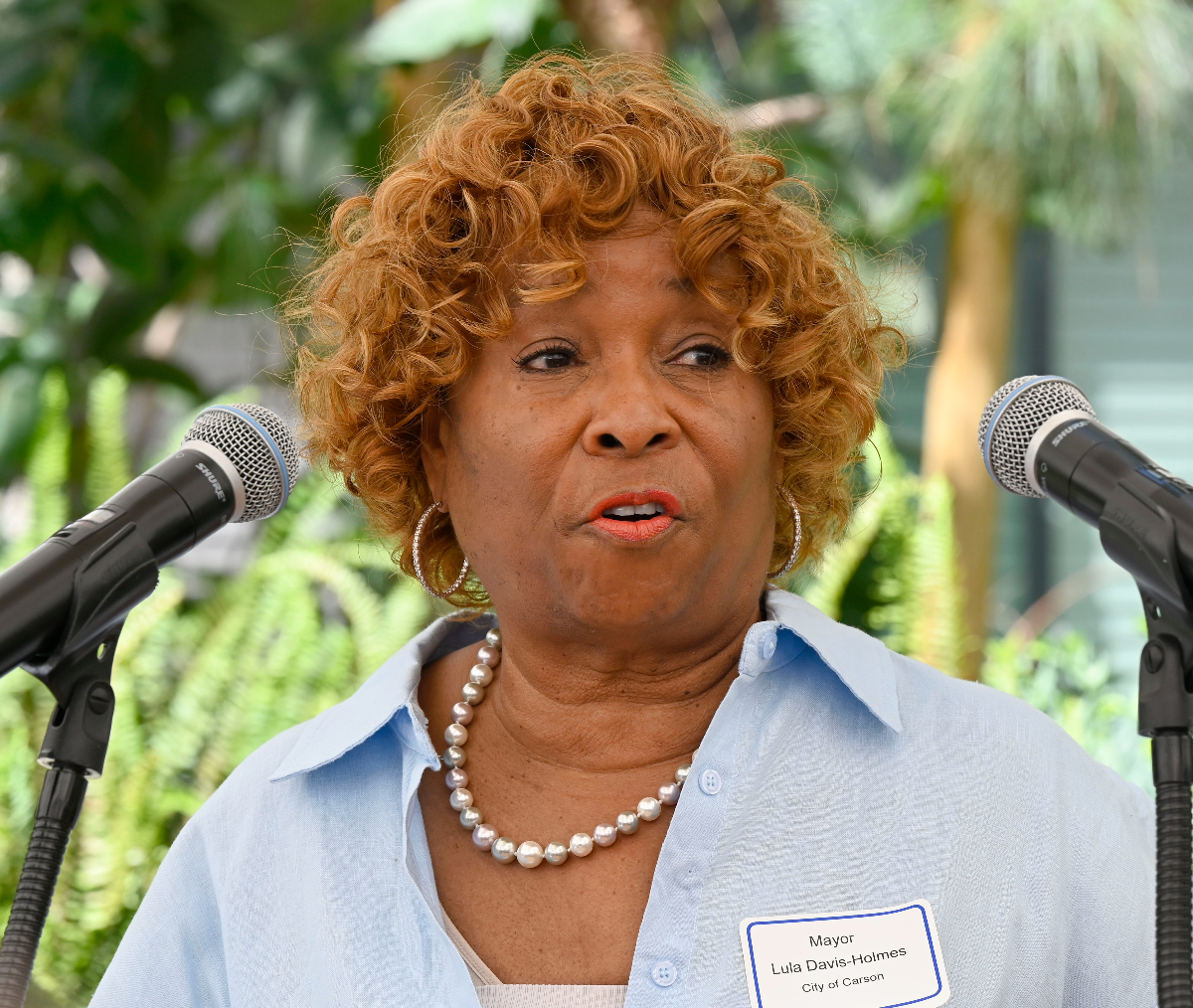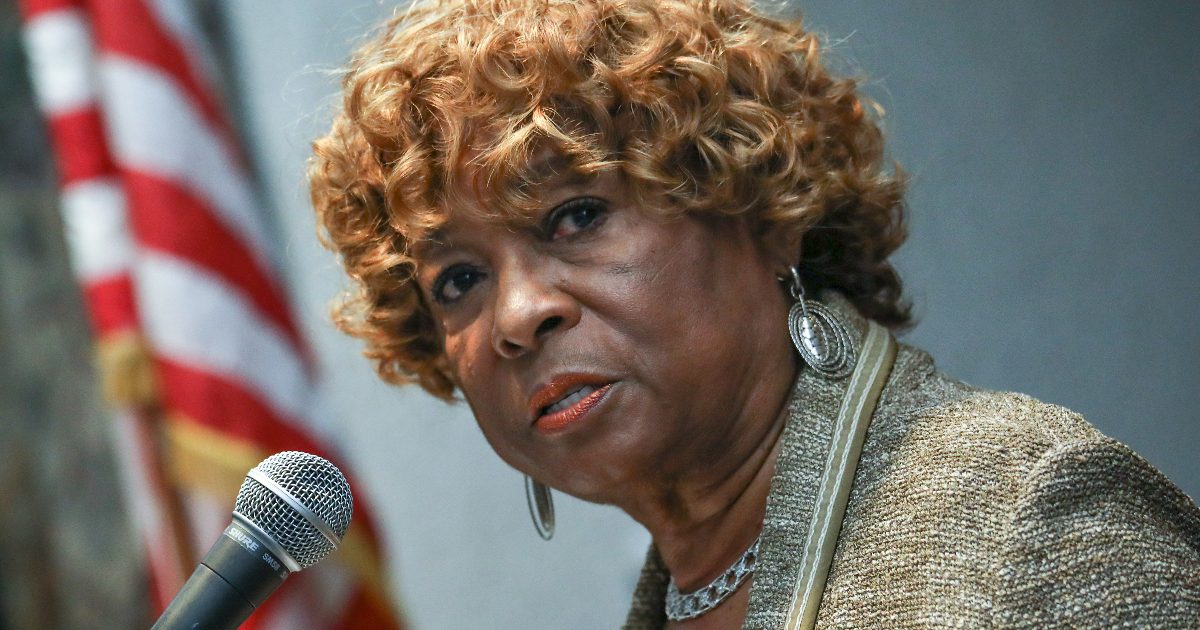Raising Breast Cancer Awareness
- Mayor Lula Davis-Holmes was diagnosed with breast cancer more than 35 years ago after finding an elongation in her breast, which doctors initially dismissed as not cancerous. Now she’s sharing her cancer story at the Women’s Health Conference, which aims to provide free medical information, examinations and services to members of her community.
- Breast cancer is a common cancer that has been the subject of much research, so there are many treatment options out there. Mammograms, a standard screening procedure for breast cancer, and self breast exams can save lives.
- Signs and symptoms of breast cancer can include a breast lump or thickening that feels different from the surrounding tissue; a change in the size, shape or appearance of a breast; changes to the skin over the breast such as dimpling; developing a newly inverted nipple; peeling, scaling, crusting or flaking of the pigmented area of skin surrounding the nipple (areola) or breast skin; and redness or pitting of the skin over your breast like the skin of an orange.
- Risk factors for breast cancer include: being a woman, age, family history, having had a prior biopsy on an abnormal area, radiation exposure, lifetime estrogen exposure, not having a child before age 30 or never having children, obesity, drinking alcohol and lack of exercise.
Despite first being told she didn’t have cancer, the mom of six decided to advocate for herself and find another health clinic. The second round of doctors she visited also didn’t think she had cancer, but they took a biopsy out of precautionwhich revealed her diagnosis.
Read More
The event, which will host dozens of breast cancer survivors, is taking place on October 21 at the Congresswoman Juanita Millender-McDonald Community Center.
"I just kept a positive attitude and knew that I was going to be a testimony for other women that had similar illnesses, that you too can survive, but you have to get the right treatment, and you have to be proactive and take control of your own health and your own life. That's what this conference is about,” Davis-Holmes said.
Attendees will be able to listen to approximately 15 doctors speak on several women’s health topics, get free mammograms and vaccinations, as well as check the women’s health vendors.
"They have the opportunity to connect with skilled professionals, as many women may not know what doctor to go to. They've said, 'This is just awesome because I can actually sit down and talk to a doctor right then and there,'” she explained.
Anyone seeking information on the event can contact 310-346-8968 or 310-952-1722.
Understanding Breast Cancer
Breast cancer is a common cancer that has been the subject of much research. Many women develop this disease every year, but men can develop this cancer too though it is more rare, in part, due to the simple fact that they have less breast tissue.
There are many treatment options for people with this disease, but treatment depends greatly on the specifics of each case. Identifying these specifics means looking into whether the cancerous cells have certain receptors. These receptors the estrogen receptor, the progesterone receptor and the HER2 receptor can help identify the unique features of the cancer and help personalize treatment.
"These receptors, I like to imagine them like little hands on the outside of the cell, they can grab hold of what we call ligands, and these ligands are essentially the hormones that may be circulating in the bloodstream that can then be pulled into this cancer cell and used as a fertilizer, as growth support for the cells," Dr. Elizabeth Comen, a medical oncologist at Memorial Sloan Kettering Cancer Center, previously told SurvivorNet.
The Unique Features of Breast Cancer: Deciding the Right Course of Treatment
One example of a type of ligand that can stimulate a cancer cell is the hormone estrogen, hence why an estrogen receptor positive breast cancer will grow when stimulated by estrogen. For these cases, your doctor may offer treatment that specifically targets the estrogen receptor. But for HER2 positive breast cancers, therapies that uniquely target the HER2 receptor may be the most beneficial.
Symptoms of Breast Cancer
Signs and symptoms of the disease can include the following:
- A breast lump or thickening that feels different from the surrounding tissue
- Change in the size, shape or appearance of a breast
- Changes to the skin over the breast, such as dimpling
- A newly inverted nipple
- Peeling, scaling, crusting or flaking of the pigmented area of skin surrounding the nipple (areola) or breast skin
- Redness or pitting of the skin over your breast, like the skin of an orange
It's important to keep an eye out for these symptoms while remembering that having one or many of them does not necessarily mean you have breast cancer. Regardless, you should always speak with a doctor promptly if anything ever feels off or you're experiencing one or more of the signs listed above. You never know when speaking up about your health can lead to a very important diagnosis.
Breast Cancer Screening
Screening for breast cancer is typically done via mammogram, which looks for lumps in the breast tissue and signs of cancer. The American Cancer Society (ACS) says women should begin yearly mammogram screening for breast cancer at age 45 if they are at average risk for breast cancer. The ACS also says those aged 40-44 have the option to start screening with a mammogram every year, and women age 55 and older can switch to a mammogram every other year, or they can choose to continue yearly mammograms.
For screening purposes, a woman is considered to be at average risk if she doesn't have a personal history of breast cancer, a strong family history of breast cancer, a genetic mutation known to increase risk of breast cancer such as a BRCA gene mutation or a medical history including chest radiation therapy before the age of 30. Beyond genetics, family history and experience with radiation therapy, experiencing menstruation at an early age (before 12) or having dense breasts can also put you into a high-risk category. If you are at a higher risk for developing breast cancer, you should begin screening earlier.
In a previous interview with SurvivorNet, Dr. Connie Lehman, chief of the Breast Imaging Division at Massachusetts General Hospital, said people who hadn't reached menopause yet should prioritize getting a mammogram every year.
When Should I Get a Mammogram?
"We know that cancers grow more rapidly in our younger patients, and having that annual mammogram can be lifesaving," Dr. Lehman said. "After menopause, it may be perfectly acceptable to reduce that frequency to every two years. But what I'm most concerned about is the women who haven't been in for a mammogram for two, three or four years, those women that have never had a mammogram. We all agree regular screening mammography saves lives."
It's also important to be on top of self breast exams. If you ever feel a lump in your breast, you should be vigilant and speak with your doctor right away. Voicing your concerns as soon as you have them can lead to earlier cancer detection which, in turn, can lead to better outcomes.
Advocating for Your Health
Whether you are currently battling cancer or worried that you might have it, it's always important to advocate for your health. Cancer is an incredibly serious disease, and you have every right to insist that your doctors investigate any possible signs of cancer.
Be Pushy, Be Your Own Advocate… Don't Settle
"Every appointment you leave as a patient, there should be a plan for what the doc is going to do for you, and if that doesn't work, what the next plan is," Dr. Zuri Murrell, director of the Cedars-Sinai Colorectal Cancer Center, told SurvivorNet in a previous interview. "And I think that that's totally fair. And me as a health professional that's what I do for all of my patients."
Contributing: SurvivorNet Staff
Learn more about SurvivorNet's rigorous medical review process.


